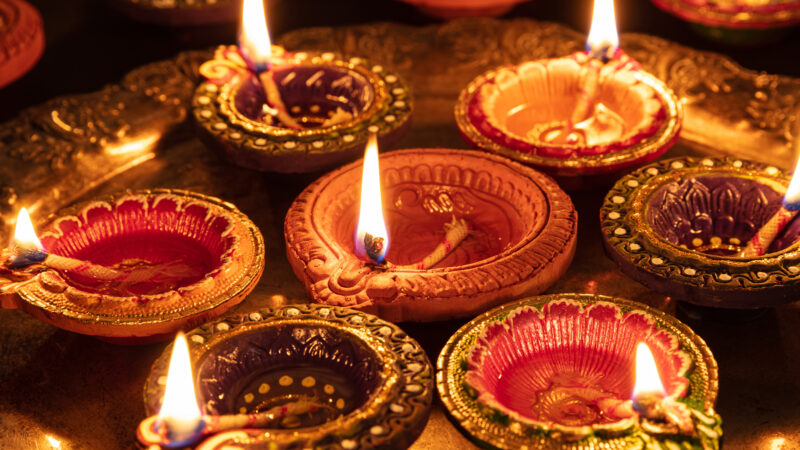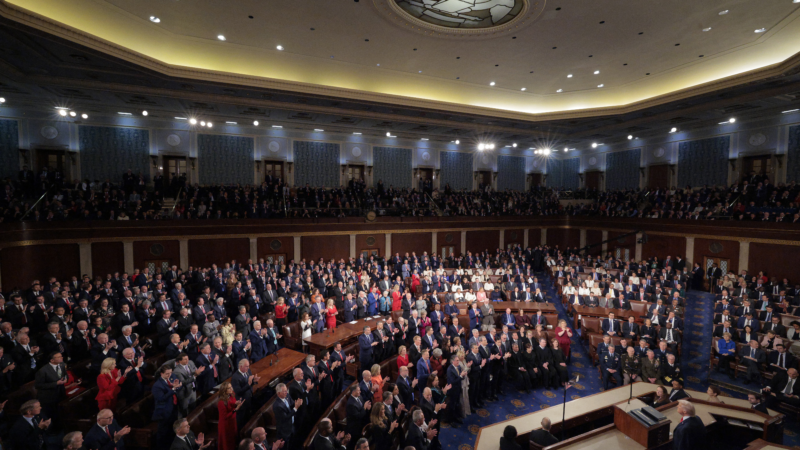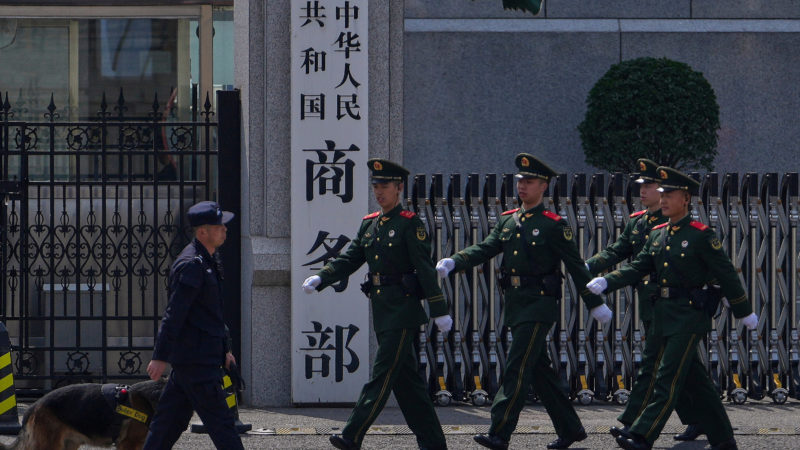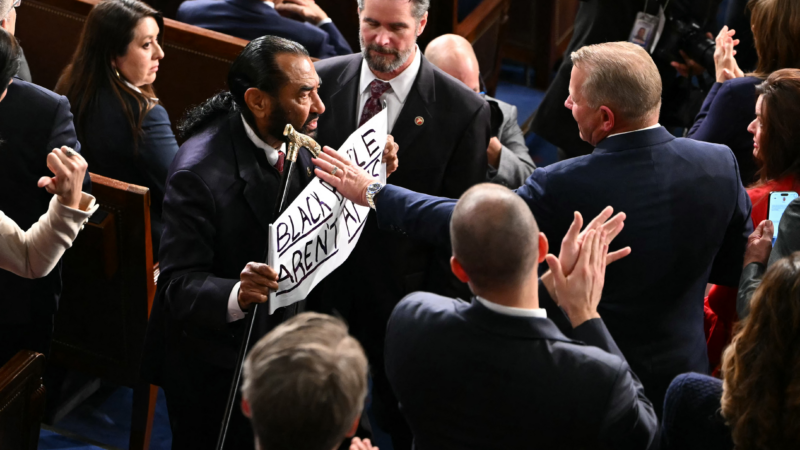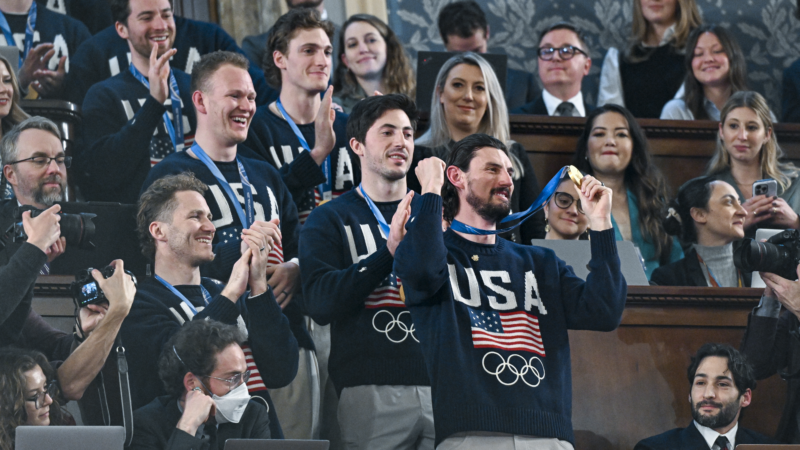With steep tariffs on Indian imports, Diwali is expensive to celebrate this year in Alabama
This story was produced through a collaboration between NPR and Religion News Service.
Shilpa Desai has worked in South-Asian grocery stores in central Alabama for the past 15 years. Right now, she’s worried that her customers won’t be able to afford staple goods, some of which, she said, have jumped 70% in price due to increased tariffs on Indian imports.
In August, the Trump administration imposed a 50% tariff on goods imported from India; half of that increase was enforced as a punitive measure in response to India’s purchase of Russian oil.
“Middle class, they cannot afford,” Desai said, standing in an aisle of Jubilee Groceries in Vestavia Hills, Alabama. “Especially big occasions, Diwali and everything.”
Diwali, the festival of lights, falls on Monday, Oct. 20, this year, and according to Desai, the holiday is one of the busiest times of year for the store, along with Eid. Customers prepare for their festivities and stock up for the year on staples like lentils, spices, oil, rice and wheat flour — all imported from India.
Hindus, Jains and Sikhs around the world have been preparing to celebrate Diwali through cultural performances, worship services and plenty of social gatherings with sweets and gifts. Many families light oil lamps and decorate their homes with lanterns and colorful artwork. Sometimes there are fireworks or sparklers. And, new or festive clothing often marks a holiday meant to celebrate renewal and prosperity.
Aastha Shastri has taught Bollywood dance in Alabama since 2011. Despite several performances slated for the holiday season, the school has decided to forgo new costumes for this year’s shows. Usually costumes cost about $40, but this year, to get them imported, Shastri’s troupe was looking at $90 per costume for each child, which parents weren’t willing to shell out.
Instead, Shastri has enlisted parents to craft props and costumes.
“ I guess if I had to take it in a positive way, I would say it’s making the artists come out of all of the parents,” Shastri said.
Across Dharmic traditions, Diwali celebrations differ. Hindus celebrate the anniversary of Lord Ram’s return to Ayodhya after a victorious battle against King Ravana, rescuing his wife, Sita. For Jains, the holiday signifies the anniversary of Lord Mahavira’s nirvana, or spiritual liberation. Sikhs celebrate Bandi Chhor Divas, the release of Guru Hargobind Ji and 52 princes from imprisonment.
According to Gene Grossman, a professor of international economics at Princeton University, the tariffs are some of the steepest in U.S. trade policy history.
“ The last time we saw tariffs at this level in the U.S. was during the Great Depression, the so-called Smoot-Hawley tariffs,” Grossman said, adding that tariffs can be borne by three parties: the exporter, the wholesaler or the consumer.
“ The most recent history we have is the tariffs on China in the first Trump administration. Those (tariffs) were 98% passed on to American consumers,” Grossman said.
Layna Mosley, a professor of politics and international affairs, also at Princeton University, addressed the number of reasons the Trump administration has cited for these tariffs, including bringing manufacturing jobs to the United States, using tariff revenue to pay for tax cuts and penalizing other countries.
“ You kind of get into a bit of trouble here because you’re trying to do multiple things maybe with this one instrument. And it’s not at all clear that imposing tariffs is going to cause governments to change their policies,” Mosley explained.
The idea behind this round of retaliatory tariffs on Indian goods is that Indian businesses will put pressure on their government to change their policies to have tariffs dropped.
“ But you know, it requires this long linkage between the tariffs and foreign policy behavior,” Mosley said.
Mosley said the function of tariffs to influence foreign policy “ suggests that many of these tariffs are kind of here to stay for, for quite some time.”
Because the tariffs have only recently gone into effect, the impacts of them remain to be seen.
For now, consumers are doing their best. For Desai, it’s preparing a mountain of food as part of Diwali festivities.
“ We make all the different food, different sweets, different snacks,” Desai says. “Normally we do it like 50, 56 items it’s supposed to be. So I try my best to do 56 items.”
For Aastha Shastri, it’s getting creative to keep the magic of the holiday alive.
“ We have to come up with the unique ideas, you know, how we can mix and match with last year’s costume,” Shastri says. Kids have grown over the past year, “but parents have helped us so much.”
Vahini Shori is a Report for America corps member covering faith and culture for WBHM.
This reporting is supported by WBHM’s Local Journalism Innovation Fund. Find out more about the fund and how to donate here.
Trump’s many tariff tools mean consumer prices won’t go down, analysts say
The Supreme Court struck down President Trump's signature tariffs. But the president has other tariff tools, and consumers shouldn't expect cheaper prices anytime soon, economists say.
Hundreds of American nurses choose Canada over the U.S. under Trump
More than 1,000 American nurses have successfully applied for licensure in British Columbia since April, a massive increase over prior years.
5 takeaways from Trump’s State of the Union address
President Trump hit familiar notes on immigration and culture in his speech Tuesday night, but he largely underplayed the economic problems that voters say they are most concerned about.
China restricts exports to 40 Japanese entities with ties to military
China on Tuesday restricted exports to 40 Japanese entities it says are contributing to Japan's "remilitarization," in the latest escalation of tensions with Tokyo.
Signs, silence, and skipping: How Democrats protested Trump’s State of the Union
The pushback comes as Democrats enter a midterm year where they hope to make gains in the House and Senate.
Trump honors gold medal-winning men’s hockey team at State of the Union amid controversy
The celebration of the men's team comes after FBI Director Kash Patel's trip to the Games in Milan, and the president's comments about the U.S. women's team, have drawn scrutiny.

